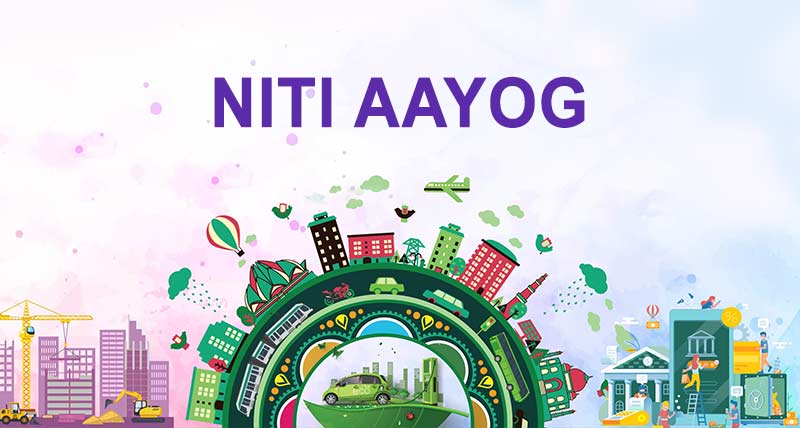- India
- Jul 29
PM Modi chairs 9th Governing Council Meeting of NITI Aayog
• Prime Minister Narendra Modi chaired the ninth Governing Council Meeting of NITI Aayog at the Rashtrapati Bhavan Cultural Centre in New Delhi on July 27.
• It was attended by Chief Ministers/Lt.Governors representing 20 states and six UTs. As many as 10 states and UTs did not participate in the meeting.
Highlights of the meeting:
• PM Modi emphasised on cooperation and collective effort of all states and the Centre to work together in order to achieve the vision of ‘Viksit Bharat@2047’.
• He encouraged states to provide an investor-friendly environment. He directed NITI Aayog to prepare an ‘Investment-friendly Charter’ of parameters which would include policies, programmes and processes to be put in place for attracting investments. The states may be monitored on the achievement in these parameters to promote healthy competition among them for attracting investments.
• The Prime Minister wants the states to spend more on districts so that they can become drivers of growth.
• The meeting also discussed demographic management and the concept of ‘zero poverty’.
• The Prime Minister appreciated the idea of ‘zero poverty’ floated by some states and said that it should be targeted at the village level.
• He has said villages can be declared ‘zero poverty village’ after assessment.
• A vision document is being prepared to help India become a developed economy of $30 trillion by 2047, the 100th year of its Independence.
• NITI Aayog will finalise ‘Vision India@2047’ document in the next 45 days after receiving responses from Chief Ministers of the states.
What is NITI Aayog?
• National Institution for Transforming India, better known as NITI Aayog, was formed via a resolution of the Union Cabinet on 1 January 2015.
• The government constituted NITI Aayog to replace the Planning Commission, which had been instituted in 1950.
• NITI Aayog acts as the quintessential platform of the government of India to bring the states to act together in national interest, and thereby fosters cooperative federalism.
• It is the premier policy think tank of the government of India, providing directional and policy inputs. Apart from designing long-term policies and programmes for the government of India, NITI Aayog also provides relevant strategic and technical advice to the Centre, states, and Union Territories.
• NITI Aayog is developing itself as a state-of-the-art resource centre with the necessary knowledge and skills that will enable it to act with speed, promote research and innovation, provide strategic policy vision for the government, and deal with contingent issues.
Team NITI Aayog
• The Prime Minister is the chairperson of NITI Aayog. The vice chairperson is appointed by the Prime Minister. Currently, there are four full-time members. Four Union ministers are nominated by the Prime Minister as Ex-officio members. Special Invitees are also nominated to NITI Aayog.
• Chief Executive Officer (CEO) is appointed by the Prime Minister for a fixed tenure, in the rank of secretary to the government of India.
NITI Aayog’s entire gamut of activities can be divided into four main heads:
1) Policy and Programme Framework
2) Cooperative Federalism
3) Monitoring and Evaluation
4) Think Tank, and Knowledge and Innovation Hub.
• NITI Aayog plays an integrative role — with the active involvement of states, the civil society, and other think tanks — in development of a shared vision of national priorities and strategies in critical areas of human and economic development.
Governing Council of NITI Aayog
• The Governing Council of NITI Aayog, comprising Chief Ministers of all states and Union Territories with legislatures and Lt Governors of other Union Territories, came into effect on February 16, 2015.
• The Governing Council is chaired by the Prime Minister.
• It also includes ex-officio members and special invitees.
• It is the premier body tasked with evolving a shared vision of national priorities and strategies, with the active involvement of states, in shaping the development narrative.
• The Governing Council, which embodies the objectives of cooperative federalism, presents a platform to discuss inter-sectoral, inter-departmental and federal issues to accelerate the implementation of the national development agenda.
Manorama Yearbook app is now available on Google Play Store and iOS App Store


